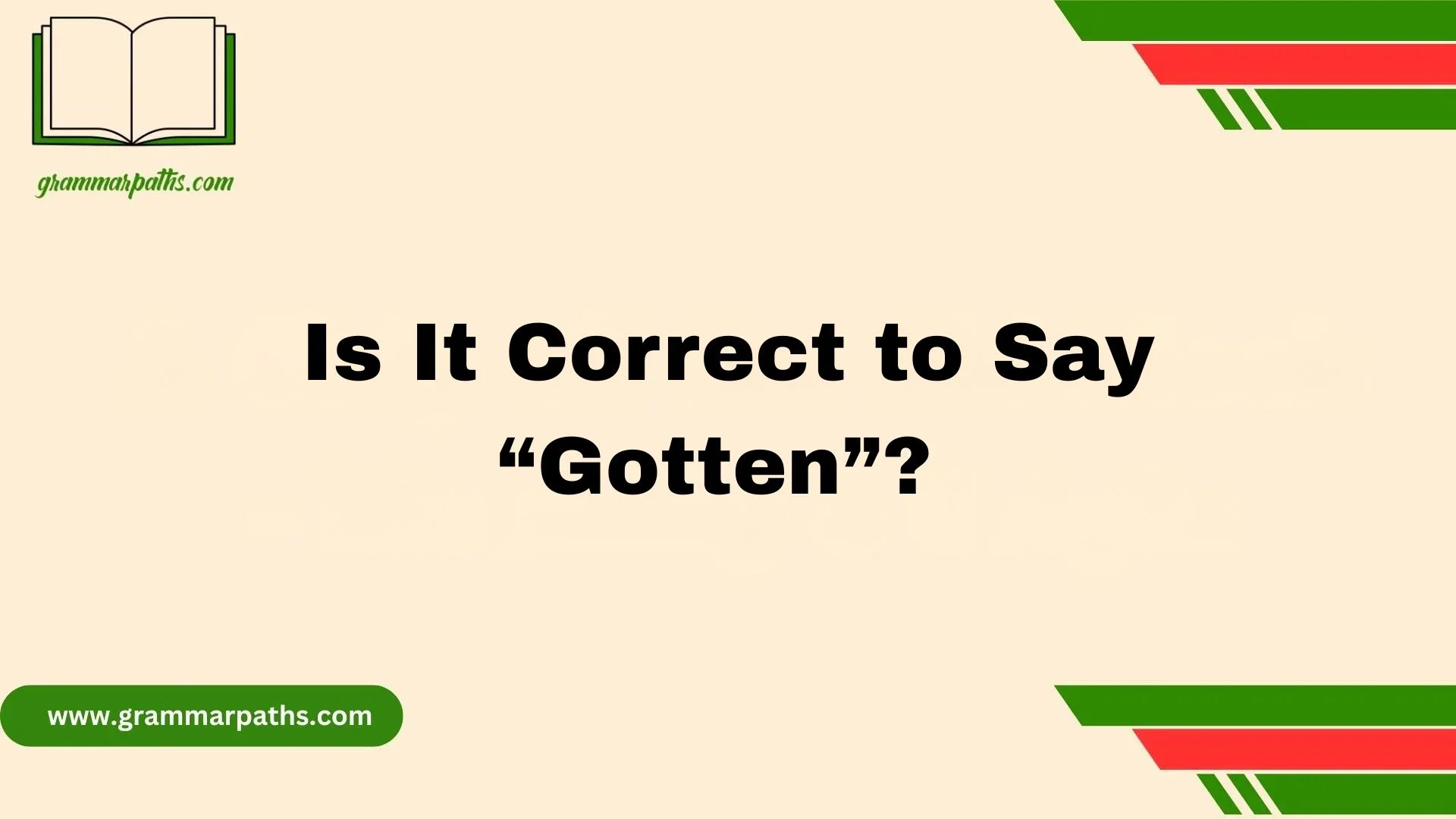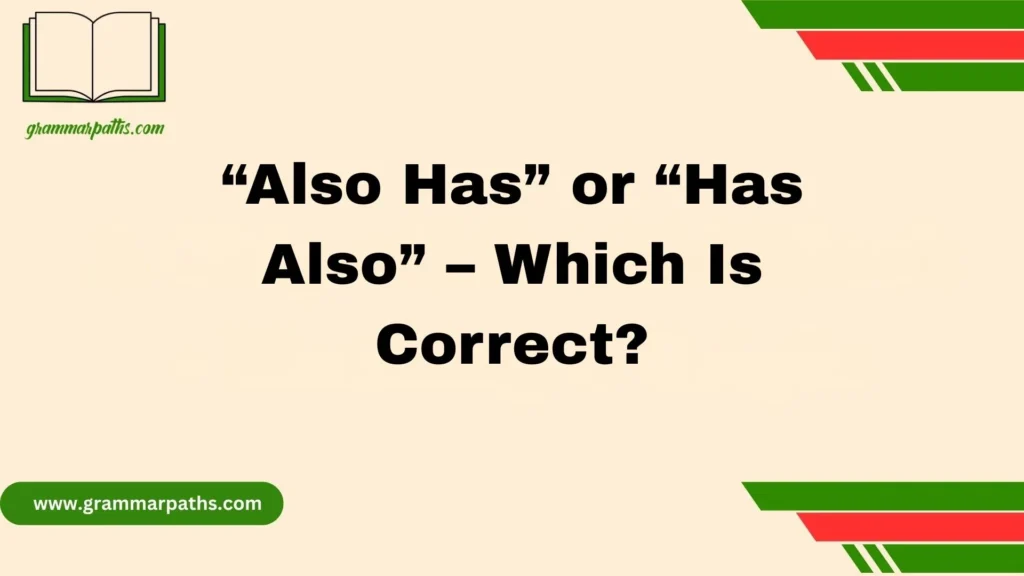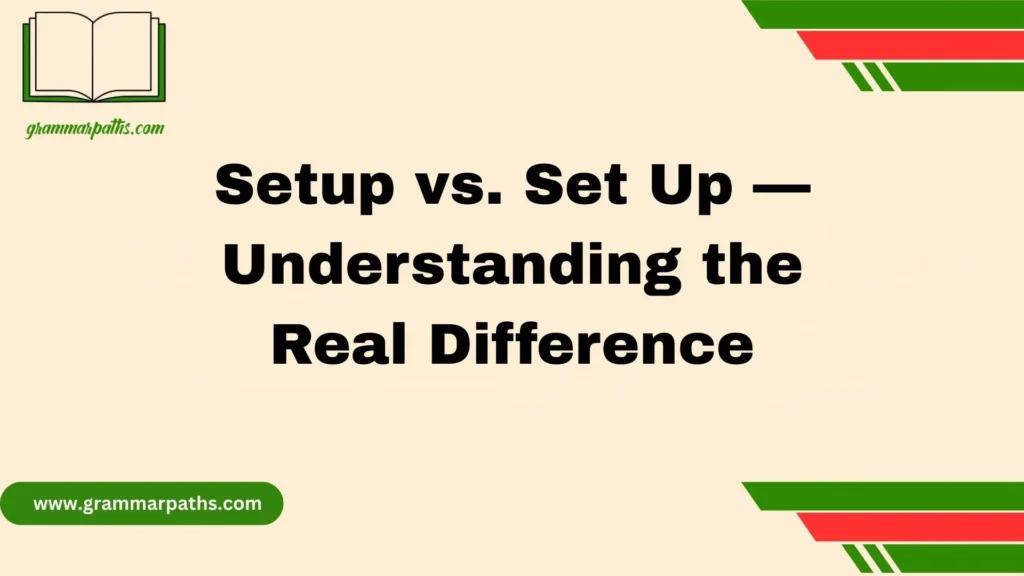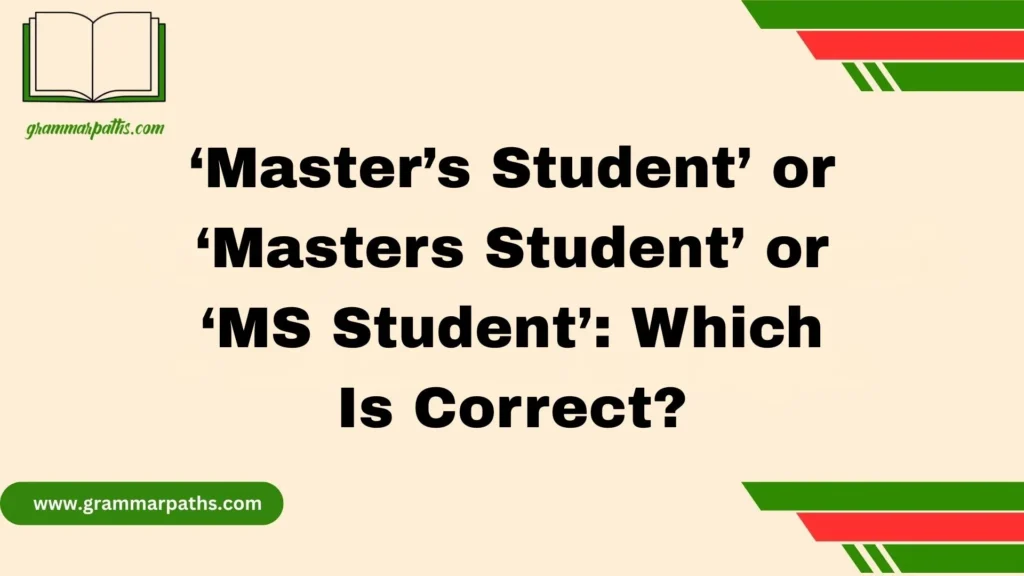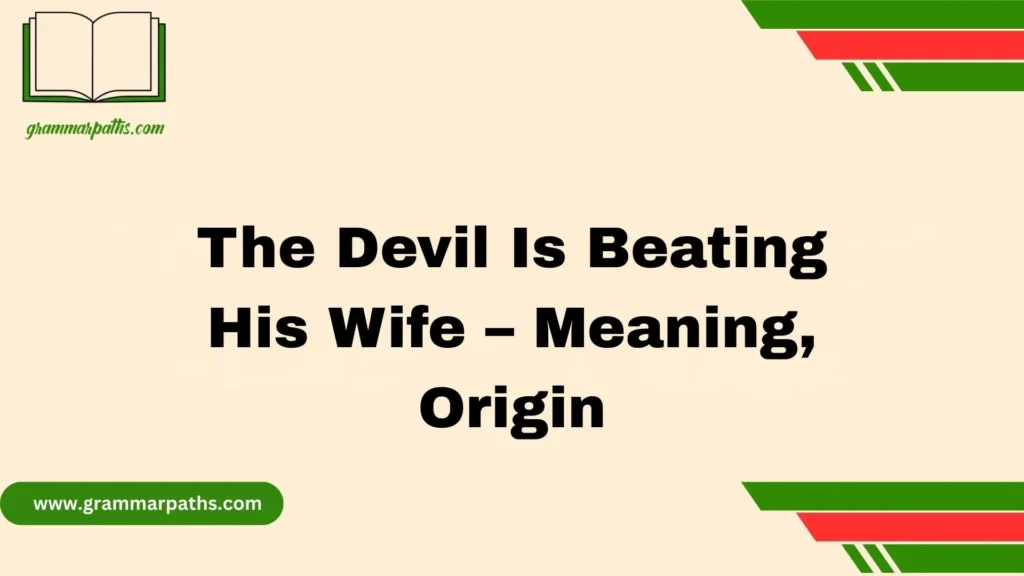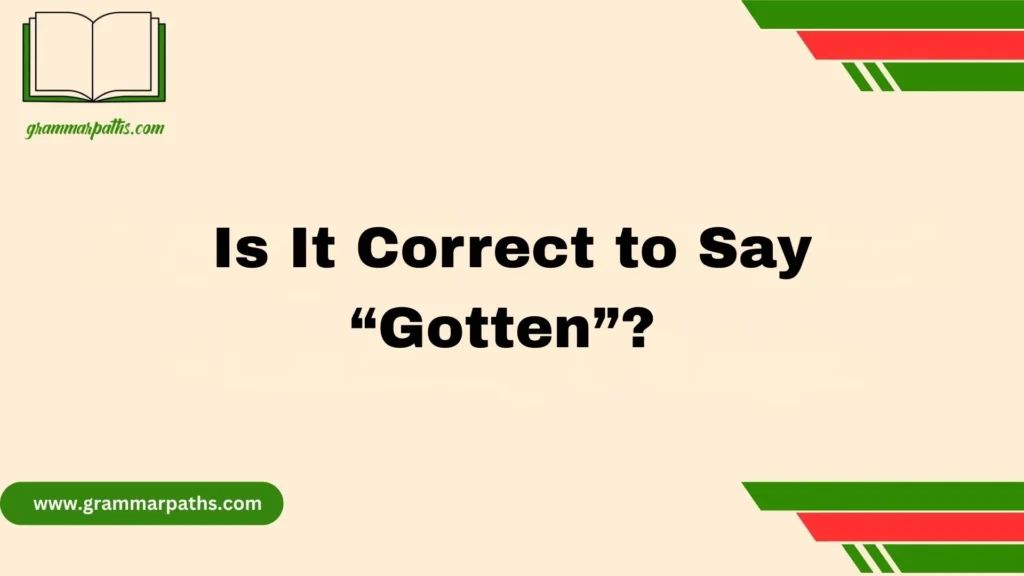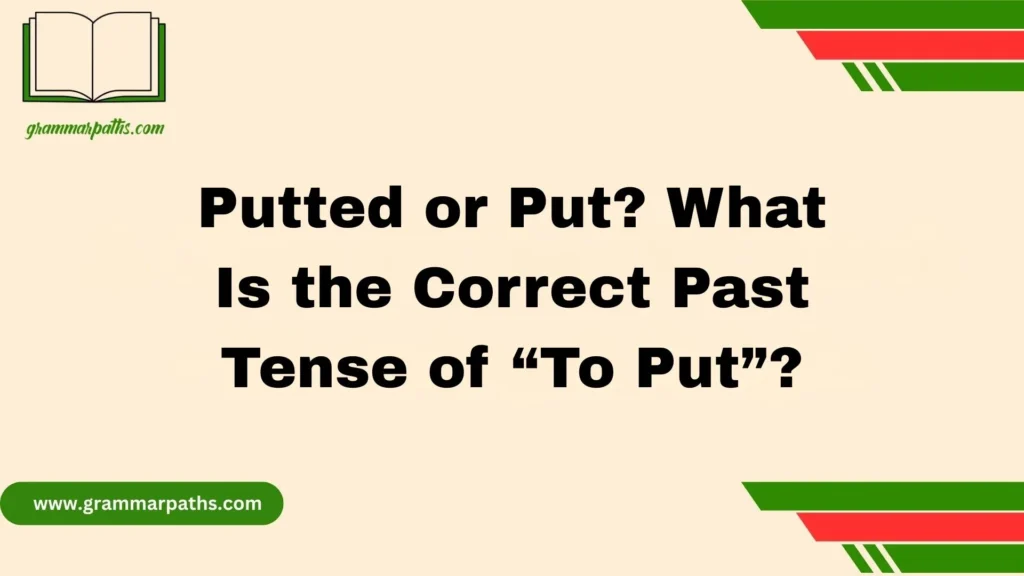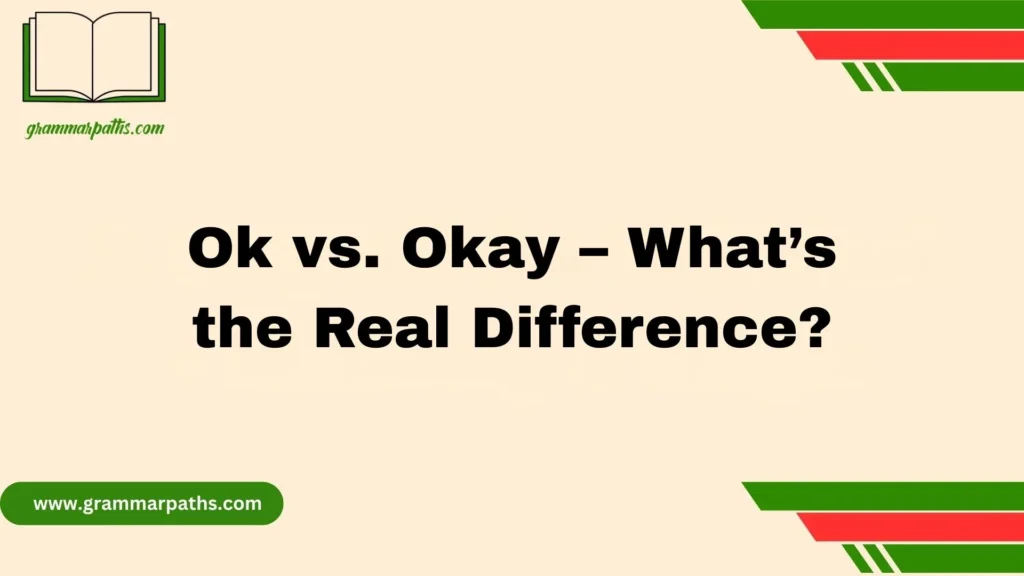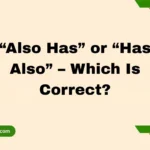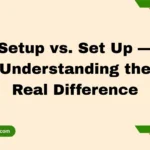When I first learned English, I often wondered why Americans say gotten while the British say got. The difference seemed confusing at first, but with time, I realized it’s more about how each form fits into British and American English. In British English, people use got as the past participle of get, while in American English, they prefer gotten. Both have the same meaning, yet how you choose between the two depends on being consistent with the version of English you’re speaking.
From my experience teaching English learners, I often tell students to opt for one form and stick with it to sound natural. The rules aren’t set apart by strict grammar but by habit and cultural tone. So, if you want your English to sound fully natural, it’s simple—just stay true to the variety you’ve learned. Once you take a closer look, you’ll see how easily got and gotten can work interchangeably depending on where you are and whom you’re talking to.
The Origin of “Get,” “Got,” and “Gotten”: A Historical Dive
To understand why gotten exists, you have to travel back several centuries to the roots of English itself.
The verb “get” comes from the Old Norse word “geta”, meaning to obtain, reach, or grasp. When it entered Middle English around the 13th century, it appeared in many forms, such as geten or giten. Back then, English verbs were far more flexible, and irregular verbs often had multiple past and participle endings.
Over time, two participle forms developed for get: “got” and “gotten.” Both were widely used in early English writing, including in Shakespeare’s works and the King James Bible.
Here’s a quick timeline that captures the evolution:
| Period | Language Stage | Common Forms | Example Usage |
| 1200s–1400s | Middle English | geten, giten, gotten | “He hath gotten much honor.” |
| 1500s–1600s | Early Modern English | got, gotten | “I had gotten thy letter.” |
| 1700s–1800s | British English Standardization | got | “He has got the message.” |
| 1800s–Today | American English | gotten (active form), got (possession) | “She’s gotten better at it.” |
By the late 18th century, gotten began fading from British English as the language standardized. But across the Atlantic, early American settlers preserved it in everyday speech—especially to express change, progress, or acquisition.
The British vs. American English Split: How “Gotten” Survived in the U.S.
The divide between got and gotten isn’t accidental—it’s historical. When English settlers colonized North America in the 1600s, they brought along the older form gotten. While British English evolved and gradually dropped gotten, American English retained it.
Why? Because it added clarity.
In American English, gotten signals an action or process, while got usually expresses possession or a state. For example:
- She’s gotten better at playing piano. (She improved over time.)
- She’s got a piano. (She owns one.)
That subtle difference makes gotten a handy tool in everyday speech. British English, on the other hand, simplified the system and used got for both.
Here’s a simple comparison:
| Region | Common Form | Example Sentence | Meaning |
| United States | gotten | “He’s gotten stronger.” | Change or development |
| United Kingdom | got | “He’s got stronger.” | Same meaning, different form |
| United States | got | “I’ve got a car.” | Possession |
| United Kingdom | got | “I’ve got a car.” | Possession |
So, in American English, got and gotten coexist but serve different functions. In British English, gotten is almost extinct except in a few set expressions like ill-gotten gains.
Grammar Deep Dive: “Got” vs. “Gotten” – When to Use Each
Let’s unpack how these two words function grammatically.
Using “Got”
- Simple Past: “I got a gift yesterday.”
- Possession: “I’ve got a car.” (Equivalent to I have a car.)
- Obligation (informal): “I’ve got to go.” (Means I must go.)
Using “Gotten”
- Past Participle (Action/Change): “He’s gotten better at his job.”
- Acquisition: “She’s gotten a promotion.”
- Experience: “I’ve gotten used to the noise.”
- Becoming: “It’s gotten late.”
Notice how gotten implies a process or transformation—it shows that something has changed over time.
Here’s a side-by-side comparison for clarity:
| Sentence | Dialect | Meaning |
| I got the tickets. | Both | Simple past (obtained them) |
| I’ve got the tickets. | Both | Possession (I have them now) |
| I’ve gotten the tickets. | American | Completed action (recently acquired them) |
That nuance is why Americans never fully abandoned gotten. It fills a linguistic gap that got alone can’t handle.
Modern Usage of “Gotten” in American English
In everyday American speech, gotten sounds completely natural. It’s used in all kinds of contexts—formal and informal. You’ll find it in books, news reports, and conversations across the U.S.
Here are some key ways Americans use gotten today:
- To show improvement or change
- “She’s gotten much better since last year.”
- “He’s gotten taller recently.”
- To show acquisition or receipt
- “I’ve gotten a raise.”
- “We’ve gotten your email.”
- To describe becoming or transitioning
- “It’s gotten cold outside.”
- “He’s gotten used to waking up early.”
- To emphasize experience
- “I’ve gotten used to city life.”
- “They’ve gotten close over the years.”
Even major publications like The New York Times and The Washington Post use gotten regularly. Linguists at Merriam-Webster and the Oxford English Dictionary agree—it’s grammatically correct and historically legitimate in American English.
Quote: “Gotten is not wrong—it’s simply American. Both ‘got’ and ‘gotten’ trace their roots to early English.”
— Merriam-Webster Dictionary Editorial Team
Common Phrases and Expressions Using “Gotten”
You’ll often hear gotten in idiomatic expressions that just sound right to the American ear. Replacing it with got would make these phrases feel awkward or incomplete.
Here’s a helpful list:
| Expression | Meaning | Example |
| Gotten rid of | Eliminated | “I’ve gotten rid of my old clothes.” |
| Gotten away with | Escaped blame or punishment | “He’s gotten away with it again.” |
| Gotten over | Recovered from | “She’s finally gotten over her cold.” |
| Gotten into trouble | Faced difficulties | “He’s gotten into trouble at school.” |
| Gotten out of hand | Lost control | “Things have gotten out of hand.” |
| Gotten used to | Adjusted or adapted | “I’ve gotten used to my new job.” |
Each phrase uses gotten to express movement, change, or transition—concepts that naturally fit its purpose.
Why “Gotten” Sounds Wrong to Some Speakers
If gotten is perfectly correct, why do some people still think it’s “wrong”? The reason is mostly cultural and historical, not grammatical.
When British English became the global standard during the 19th century, particularly in education and literature, its forms and rules were seen as “proper.” American variations were often viewed as informal or even incorrect. Over time, this created a bias toward British norms.
However, linguists now recognize that no dialect is inherently superior. Both are equally valid—each reflecting its own history and identity.
As the Oxford English Dictionary puts it:
“Gotten remains a legitimate and distinct form in American English, preserved from earlier British usage.”
So, if someone tells you gotten isn’t real English, you can politely remind them that Shakespeare, the King James Bible, and early British authors used it frequently.
“Got” and “Gotten” in Context: Real Examples from Both Sides
Let’s look at some authentic examples showing how both forms function in everyday language.
| Sentence | Dialect | Nuance |
| He’s gotten much better at Spanish. | American | Improvement or change |
| He’s got much better at Spanish. | British | Same meaning, different form |
| I’ve gotten used to city life. | American | Adaptation or experience |
| I’ve got used to city life. | British | Similar meaning, British structure |
| It’s gotten late. | American | Time has passed |
| It’s got late. | British | Rare but possible |
While they look similar, gotten often emphasizes the process or result of change, whereas got feels more static.
Think of gotten as showing movement—something has happened or evolved.
Think of got as showing state—something is.
When to Use “Got” vs. “Gotten”: A Practical Guide
Here’s a simple way to remember when to use each form correctly:
| Situation | Use “Got” | Use “Gotten” |
| Expressing possession (I’ve got a pen) | ✅ | ❌ |
| Simple past (I got the message) | ✅ | ❌ |
| Showing change or progress (She’s gotten better) | ❌ | ✅ |
| Showing completion (He’s gotten his results) | ❌ | ✅ |
| Indicating habit or adaptation (I’ve gotten used to it) | ❌ | ✅ |
Tip: If the sentence describes a state (something that simply exists), use got.
If it describes a process (something that has changed or developed), use gotten.
The Linguistic Beauty of Dialect Diversity
The coexistence of got and gotten proves something beautiful about the English language—it evolves and adapts with its speakers.
Instead of seeing these differences as “wrong,” linguists view them as living evidence of history. English has always been a blend of regional voices, shaped by migration, trade, and cultural exchange.
Just like color/colour, center/centre, and learned/learnt, the got/gotten difference reflects dialect diversity, not error. Each variant enriches the language in its own way.
“Language isn’t a museum—it’s a living organism. ‘Gotten’ survived in America because it filled a need.”
— Dr. Susan Lane, Linguistics Professor, NYU
Common Misconceptions About “Gotten”
Let’s bust some of the myths surrounding gotten once and for all:
- Myth: “Gotten” is American slang.
Truth: It dates back to Middle English, centuries before American English even existed. - Myth: “Gotten” and “Got” mean the same thing.
Truth: They share a root but differ in meaning and usage. Gotten focuses on action; got focuses on possession or state. - Myth: “Gotten” is grammatically incorrect.
Truth: It’s recognized as standard English in the U.S. by all major dictionaries. - Myth: Only uneducated speakers use “gotten.”
Truth: It appears in formal writing, academic publications, and respected American media outlets.
Expert Insights: What Linguists Say
Linguists agree: gotten isn’t an error—it’s a feature.
- Merriam-Webster notes: “Gotten is the older past participle of get, still in active use in American English.”
- Cambridge Dictionary states: “In U.S. English, ‘gotten’ is the past participle of get. In British English, it is ‘got.’”
- Oxford English Dictionary confirms: “The participle ‘gotten’ survived in American English as a distinct form.”
These trusted sources all emphasize one fact—gotten is entirely correct and natural in the U.S.
How to Teach or Learn “Got” vs. “Gotten” Effectively
For students and ESL learners, mastering got and gotten can be confusing—but it doesn’t have to be. Here are some practical strategies:
1. Learn by Function, Not by Form
Don’t memorize arbitrary rules. Instead, focus on meaning—ask what the sentence is doing.
- If it describes possession, use got.
- If it describes change or process, use gotten.
2. Practice with Real-Life Examples
Read American newspapers or novels and note how gotten is used.
Try rewriting sentences to see how the meaning shifts.
3. Listen to Native Speakers
Watch U.S. TV shows or interviews. You’ll notice that gotten pops up naturally in dialogue.
For example, in American sitcoms:
“I’ve gotten used to his jokes.”
While in British ones:
“I’ve got used to his jokes.”
4. Teach Dialect Awareness
Teachers should explain that neither form is superior. Encourage students to understand both for effective global communication.
Quick Recap: The Bottom Line on “Gotten”
Let’s summarize everything in one place:
| Aspect | British English (Got) | American English (Gotten) |
| Origin | Evolved from Middle English | Retained from early English |
| Use | Past tense and participle | Past participle only |
| Meaning | Possession, state | Action, process, or change |
| Examples | “I’ve got a job.” / “He’s got better.” | “I’ve gotten a job.” / “He’s gotten better.” |
| Formality | Standard | Standard in American English |
So, yes—“gotten” is correct. It’s not slang, not informal, and definitely not wrong. It’s simply American English doing what it does best—preserving history while staying practical.
Conclusion
After taking a closer look at the usage of got and gotten, it’s clear that both forms are correct—just in different contexts. British English sticks with got as the past participle of get, while American English commonly uses gotten. The difference isn’t about grammar mistakes but about regional preferences and how speakers choose to stay consistent in their speaking style.
So, whether you opt for one or the other, the key is to be fully confident in your choice. Once you understand their meaning, it becomes simple to use them interchangeably when appropriate, depending on which form of English you prefer.
FAQs
1. Is “gotten” wrong in British English?
No, it’s not wrong, but it’s rarely used today in British English. Historically, “gotten” existed but gradually disappeared from common usage.
2. Why does American English still use “gotten”?
American English kept older forms of words that British English dropped over time. “Gotten” simply survived the language evolution on the other side of the Atlantic.
3. Should I use “got” or “gotten” in formal writing?
It depends on your audience. If you’re writing for Americans, gotten is acceptable. For British readers, got sounds more natural and formal.
4. Are “got” and “gotten” interchangeable?
In most cases, yes—but with nuance. For example, “I’ve got a car” (possession) and “I’ve gotten better” (improvement) show how the meanings can shift slightly.
5. How can I remember which to use?
A simple tip: If you’re learning American English, stick with gotten; if it’s British English, choose got. Staying consistent helps keep your speaking natural and fluent.

Emma Brooke is a passionate language expert and contributor at GrammarPaths.com, where she helps learners navigate the complexities of English grammar, idioms, and effective writing. With a strong academic background and years of teaching experience, Emma excels at turning tricky grammar rules into simple, practical lessons that readers can easily grasp.
